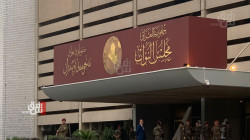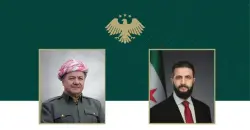Exclusive: HTS not covered by Iraq's Amnesty Law, expert confirms

Shafaq News/ On Monday, legal expert Mohammad Jumaa revealed whether Ahmad al-Sharaa, known as Abu Mohammed al-Julani, the leader of Hayat Tahrir al-Sham (HTS), could be covered by the General Amnesty Law that the Iraqi parliament plans to enact.
Jumaa told Shafaq News that "the general amnesty applies only to Iraqis and does not extend to foreigners, regardless of the crime committed or the charges against them. Ahmad al-Sharaa is Syrian, not Iraqi, and therefore is not subject to the provisions of the General Amnesty Law."
He indicated that the arrest warrant issued by the Iraqi judiciary presents a dilemma for Iraq's security forces in case al-Sharaa holds an official position in the new Syrian government and wishes to visit Iraq, adding, “If al-Sharaa becomes the president of Syria, he will be granted diplomatic immunity and cannot be arrested.”
Earlier, an informed source told Shafaq News that "when al-Sharaa was in Iraq as a member of al-Qaeda, he was arrested by the US forces between 2007 and 2008.” However, no Iraqi court issued a ruling against him at the time.
Years later, a subsequent arrest warrant was issued against him without a court ruling, after prisoners confessed to various terrorist charges against al-Julani, the sources explained.
On Thursday, the HTS leader, denied having previously participated in sectarian battles in Iraq, emphasizing that his group, severed its ties with al-Qaeda, and does not have connections to any external organizations or entities.
Notably, during an American delegation's visit to Damascus last week, Barbara Leaf, the United States Assistant Secretary of State for Near Eastern Affairs, revealed that she had met with Syria's new leadership, including al-Sharaaa, and the US had revoked the $10 million reward for information on him.
Observers noted that a search of the US Rewards for Justice website, which lists rewards for information on "wanted terrorists," no longer displays a page for al-Sharaaa, though HTS itself remains listed.
Hayat Tahrir al-Sham originated from Jabhat al-Nusra, al-Qaeda's Syrian affiliate, formed during the early years of the conflict. It severed public ties with al-Qaeda in 2016, rebranding itself as an independent Salafi-jihadist organization.
HTS, classified as a terrorist organization by the US, Turkiye, the United Nations, and other Western nations, has emerged as a dominant player in Syria following the fall of Bashar al-Assad’s regime.
As of now, no country has officially removed Hayat Tahrir al-Sham (HTS) from their list of designated terrorist organizations. However, there are ongoing discussions and considerations in some countries like France, the UK, Turkiye, and Canada.
About the General Amnesty Law
The General Amnesty Law, first enacted in 2008, has become a focal point of Sunni political demands for national reconciliation. The 2016 revision aimed to increase Sunni inclusion in Iraq’s political framework but faced resistance from Shia factions, concerned it could enable the release of convicted terrorists.
Proposed amendments now exclude individuals convicted of terrorism and serious crimes, seeking compromise. However, the law remains divisive, as Shia leaders prioritize national security, while Sunni representatives view it as critical for peace and political balance.





